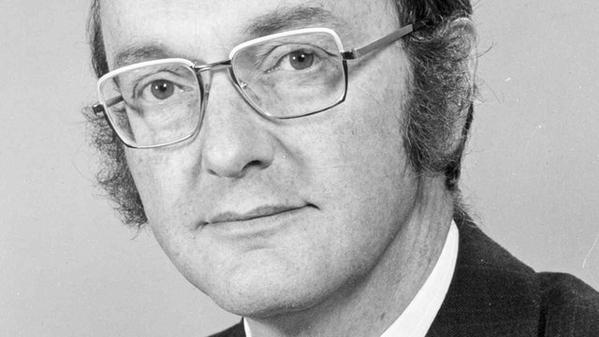
Donald Davies lays the foundations of the Internet
If it weren’t for the work of one great Welsh inventor the world as we know it would be a very different place. We probably wouldn’t have any cat videos, bad meme jokes or Doge for a start…So strap yourselves in as we explore the next in our British and Irish Inventions blog series (you can see previous editions here!)
Donald Davies, revered computer scientist and brilliant mathematician, played a key role in the development of packet switching – laying the foundations for the creation of the Internet itself. It’s one of those truly vital components to the modern world that very few of us ever think about.
So packet switching (if you were unsure) allows data to be shared in blocks, while transmitting it multiple times, and simultaneously. My head spins.
Davies first presented his ideas in 1968. Specialising in data communications, he had realised the time-sharing computer systems of the time struggled with the cost of keeping a phone connection live for each user.
Forget an easy swipe to the right – making a phone call back then required creating an electrical circuit between the two people taking part in the conversation. This meant tying up the entire line for however long they were talking.
Davies recognised this was a bit of a pain in the neck. Rather than copy the method into computers, he realised much larger pieces of information could be sent in between the spaces and gaps in ‘packets’. By sending data this way the link could carry much larger amounts of information and the network made more powerful.
Believe it or not, the story of how he got there is fascinating…
After the Second World War, Davies worked at the National Physical Laboratory – where Alan Turing was developing the Automatic Computing Engine (ACE).
The project never fully got off the ground, with Turing perhaps overcooking it on the ambition front. After he left to carry out a sabbatical at Cambridge the plans were reigned in to create a scaled-back version known as the Pilot ACE.
The little machine first ran in 1950.
Davies also spotted the first ‘programming errors’ in an earlier paper of Turing’s On Computable Numbers – this is despite computers at that time still being theoretical, rather than physical!
It has all the hallmarks of an early day ‘Twitter beef’…
But it was his later work on packet switching that would lay the foundations for what would eventually become the World Wide Web.
After packet switching was let out of the bag, the idea of reorganising computer networks proved to be revolutionary.
Packet switching was used by ARPANET – a very early version of what you might describe as the ‘Internet’ today. The project developed by the US Department of Defence connected networks across universities and research labs, and it would later evolve into what we know today.
So although Britain didn’t quite invent the Internet, it did invent packet switching. So yes, we’re claiming it!
The country is now once again at the cutting edge, with the Internet of Everything promising to herald the next era of this technology. Gartner predicts it could be worth as much as $2trillion a year by 2020 where 30 billion objects connected. This creates huge opportunities for innovation and Britain’s thriving tech start-up scene.
Through Innovate UK, the UK Government is investing in developing the Internet of Things further and in the last couple of months announced £1 million in funding for seven start-ups on the very cutting edge.
The signs are incredibly encouraging for Britain to produce the next big thing for the Internet. This feels more than fitting, given Davies’ contribution 65 years ago.
So who would have thought it, the internet, or should we say ‘y rhyngrwyd’ has some rather strong Welsh ancestry!
Tags:



1 Comments